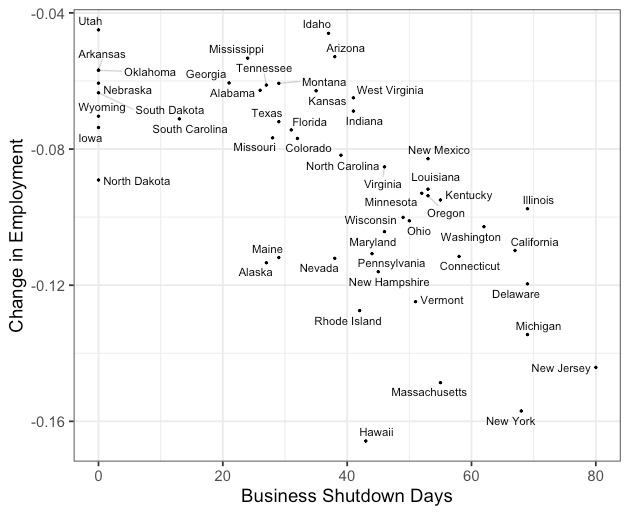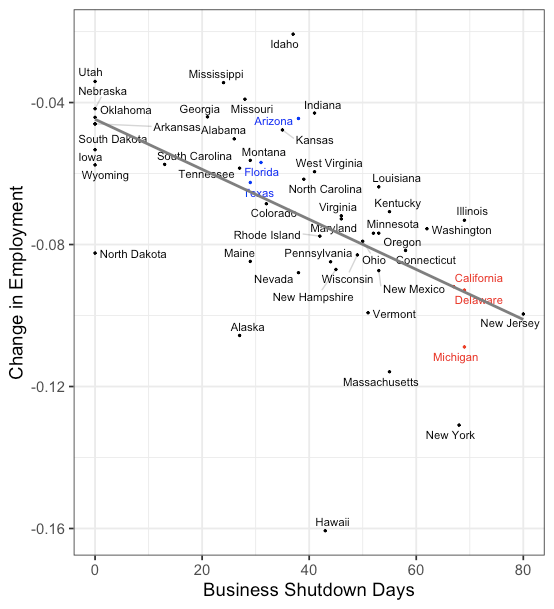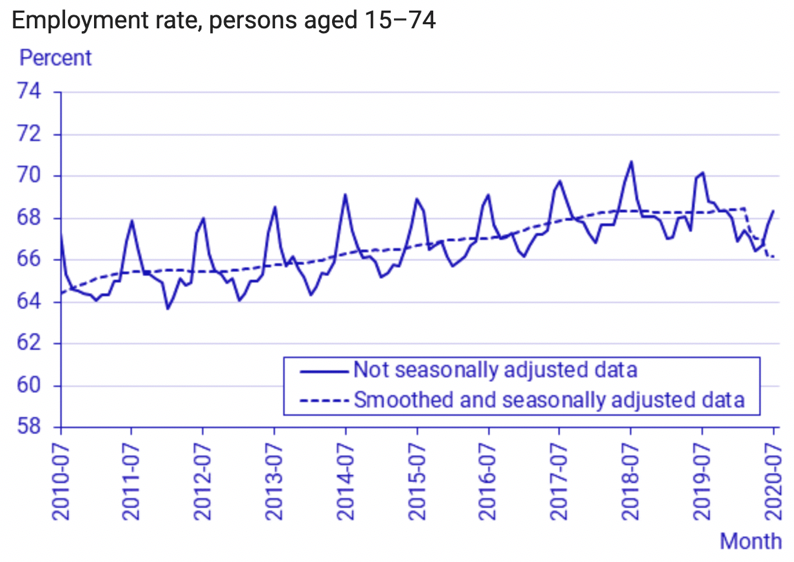It is now becoming clearer that shutdowns do indeed delay the economic recovery, and we should be updating our beliefs about this as new data come in. See this short thread. 1/12
Payrolls data at the state level was released yesterday ( https://www.bls.gov/web/laus/statewide_otm_oty_change.htm),">https://www.bls.gov/web/laus/... which is one read on how the economy’s recovery is affected by differing responses to the pandemic. 2/N
Before the resurgence of the virus in the southern states there was a clear negative relationship between shutdowns and employment. Below: the employment losses by state, from Feb through June, plotted against the number of days of business shutdowns according to the NYT tracker.
There are clear issues with this: shutdowns are endogenous to virus intensity, and higher density states require a higher response. But the relationship stays just as strong if you control for deaths per capita, or population density). Still, this was suggestive evidence at best.
We should have revised beliefs by a little, but not a lot. Then from mid-June to mid-July, three states which had reopened early had large outbreaks: Arizona, Florida and Texas. They went from being states with the smallest outbreaks to the largest in the space of a month. 6/12
The time between NFP survey weeks – 12 June to 12 July – matches exactly the timing of the outbreaks in these states. They took the opposite strategy of most states - they imposed minimal economic restrictions during the worsening outbreaks. What happened to their economies? 7/12
Astonishingly, employment grew in all three: Arizona +0.1%, Texas +0.3%, Florida +0.9%. A moment of humility for us economists - I don’t think anyone expected that. I certainly didn’t. All the warnings were the opposite – that not shutting down would tank the economy. 8/12
But the employment loss was far smaller than three states which had the same level of outbreak, but longer shutdowns– California, Delaware and Michigan. 7/12
What about other countries? Sweden is the counterexample that people turn to. When I speak to economists who are sure that the shutdowns are the best thing we can do for the economy, they always bring up that Sweden will have a recession as large as the rest. 8/12
But this is employment in Sweden – a 2% drop, milder than most recessions, and only half the drop of the great recession. 9/12
In March, we knew so little about the virus that shutting down as much economic activity as possible was clearly the right thing to do. However, that doesn’t mean that as new data come in, it will remain the right thing to do. 10/12
Optimal policy must balance many objectives, including lives saved, economic pain, school closures, and public debt. This will be the most important policy question academics can contribute to in our lifetimes. There are no easy answers. 11/12
We have been acting like a small part of the policy question is a free lunch. Economists have told the public that there is no tradeoff between stopping the virus and saving the economy. The data no longer support that view. 12/13
Our responsibility is to give the public our best read of the data in the moment. That responsibility is not once and for all. We need to be willing to say when we have changed our minds on the basis of the evidence. 13/13

 Read on Twitter
Read on Twitter





